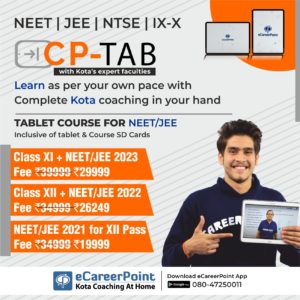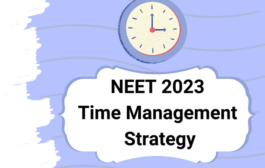Time management skills are some of the most important skills that you can learn. It is that critical area where most of the students lack and despite of talent they get deprived of success. It is the most essential quality for a student to be successful. As a student, the most precious resource with you is time and by effectively managing it you can reach the pinnacle.
Being busy in studies is not enough for success; you should concentrate on how to have a result oriented time management. Many students spend their days in a frenzy of studies but achieve very little because they are not concentrating on the right things. This is neatly summed up in the Pareto Principle, or the “80:20 Rule“. This argues that typically 80% of unfocussed effort generates only 20% of results. The remaining 80% of results are achieved with only 20% of the effort. While the ratio is not always 80:20, this broad pattern of a small proportion of activity generating non-scalar returns recurs so frequently as to be the norm in many areas.
Now you must want to know that how can you effectively utilize your time in order to get the most out of it. I am explaining the essential time management tools for student. The tools we will discuss are:
- Define Target(s)
- Finding out the value of your time
- Action Plan
- Time Table
- Deciding your study priorities
(1) Define Target(s) – What you want to achieve
You must state in your diary – “what is my Target?” It should be a precise statement like “I want to secure at least 90% marks in Board examinations” instead of a vague statement like “I want to be successful in Board examinations”.
Stating precise target helps you in visualizing and planning your efforts and the more you reiterate it the more you become psychologically closer to it. Soon it becomes part of your thinking and internally you become more committed to achieve it.
(2) Finding out the value of your time
The first part of your focus on target should be to work out how much your time values. This helps you to see if you are spending your time productively.
If you are studying for any examination like XII Board, IIT JEE, PMT etc. then you must identify that what are the total study hours available with you. Now calibrate the syllabus required for complete preparation and calculate that in one day how much syllabus you should cover. This should give a reasonable estimate of how much your time is worth – this may be a surprising figure! It will tell you your value of time and if your productivity if lesser than that then you are underperforming. This will teach you the value of one day.
When you are deciding whether or not to take a task on, think about this value. If you have to spend much of your time doing low-value jobs, then you can make a good option to drop them.
(3) Action Plan – Small Scale Planning
An Action Plan is a list of tasks that you have to carry out to achieve an objective. Wherever you want to achieve something, draw up an action plan. This allows you to concentrate on the stages of that achievement, and monitor your progress towards it.
To draw up an Action Plan, simply break up your syllabus and assign them completion dates. Let us understand in this way that you study for 7 hours in a day but you should also know that in those seven hours how much you should complete.
(4) Time Table – Finding Out How You Really Spend Your Time
Time Table helps you to analyze how you actually spend your time. The first time you use the time table you may be shocked to see the amount of time that you waste! Memory is a very poor guide when it comes to this – it is too easy to forget time spent in non productive activities, talking to friends, watching TV etc.
You may also be unaware that your energy levels may vary through the day – most people function at different levels of effectiveness at different times. Your effectiveness may vary depending on the amount of sugar in your blood, the length of time since you last took a break, routine distractions, stress, discomfort, or a range of other factors. There is also some good evidence that you have daily rhythms of alertness and energy.
Time table is a useful tool for auditing the way that you use your time. It can also help you to study in your most productive hours depending on your energy, alertness and effectiveness throughout the day.
(5) Deciding your study Priorities
An important part of focusing on results is working out what to focus on! Many students work very hard all day in an unplanned and unstructured way that does not actually affect the quality of their work.
Your priority can be decided by looking in three areas viz. clarifying what you enjoy, understanding what your strengths and weaknesses are, and working out what constitutes excellent performance.
(a) Studying what you don’t enjoy
Normally a student spends more time on the subject he likes. Liking is developed by interest and interest is developed by having more understanding of the subject. Here you should be cautious that you should not be biased for those subjects in which you develop less interest, because weaker area needs more attention.
(b) Your strengths and weaknesses
It is also important to know what your talents and weaknesses are. Say for example you have good memory but can’t sit for long hours then you can plan your study hours having small breaks of 5-10 minutes in between. You may be good in some subjects but weak in others in that case either you should consult good teachers in your weak subjects or discuss with your friends who are good in that. If you understand a topic fast but forget also soon then you should make notes while studying.
(c) Understanding how to be excellent at your studies : You should ask yourself the following questions:
- What are the measures of growth in preparation?
Work out how you are performing in mid term tests or how many questions you are able to solve on your own from the exercises given in books/study material. - What are the priorities and deadlines?
Calculate in what duration you should complete what stages of the syllabus. - What resources are available?
Find out the best books or study material available for preparation. - How other students are doing?
Understanding the competition is necessary to evaluate your own standing. You should discuss with the best students about their growth in the preparation. - What is exceptional performance?
Survey the previous years’ question papers and their minimum cut offs or merit scores.
If you have answers to these questions, you will know how to study in precisely the right way. If you know what exceptional performance is, you can plan to achieve it using all the resources you have available.
In the last I must say that time management is not everything you need for success but everything else is worthless without an effective time management. Time is very precious.
About the Author: Mr. Pramod Maheshwari is Director (Academics), Career Point Ltd, Kota. He is a distinguished scholar and academician in the field of NEET/JEE coaching, and has been involved in guiding aspirants to top-ranking performance in NEET/JEE/NTSE since he founded Career Point in 1993 after completing his B.Tech. from IIT, Delhi.











